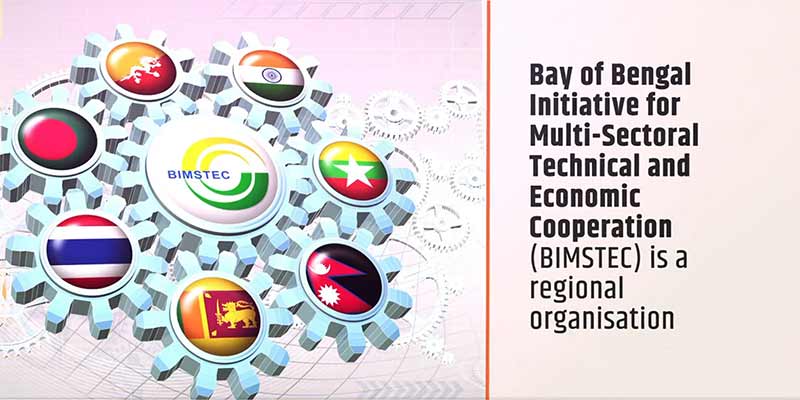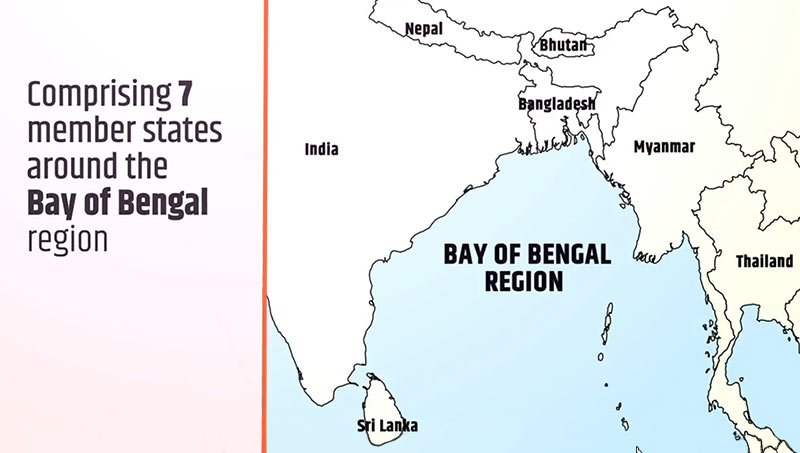- India
- Jul 16
Explainer - What is BIMSTEC?
• India hosted the BIMSTEC foreign ministers’ retreat in New Delhi to review various initiatives to expand cooperation among the grouping’s member nations.
• In his inaugural address, Minister of External Affairs Minister S. Jaishankar called on the grouping to infuse new energies, resources and a fresh commitment to bolster cooperation.
• Thailand is the current chair of BIMSTEC and it is set to host the annual summit of the grouping later this year.
What is BIMSTEC?
• The Bay of Bengal Initiative for Multi-Sectoral Technical and Economic Cooperation (BIMSTEC) comprises India, Bangladesh, Myanmar, Sri Lanka, Thailand, Bhutan and Nepal.
• It is a regional bloc comprising seven countries lying in the littoral and adjacent areas of the Bay of Bengal constituting a contiguous regional unity.
• This sub-regional organisation came into being on June 6, 1997 through the Bangkok Declaration. It constitutes five countries from South Asia (Bangladesh, Bhutan, India, Nepal and Sri Lanka) and two from Southeast Asia (Myanmar and Thailand).
• Initially, the economic bloc was formed with four member states with the acronym BIST-EC (Bangladesh, India, Sri Lanka and Thailand Economic Cooperation). Following the inclusion of Myanmar on December 22, 1997 during a special ministerial meeting in Bangkok, the group was renamed BIMSTEC (Bangladesh, India, Myanmar, Sri Lanka and Thailand Economic Cooperation).
• With the admission of Nepal and Bhutan at the sixth ministerial meeting in February 2004, the name of the grouping was changed to Bay of Bengal Initiative for Multi-Sectoral Technical and Economic Cooperation (BIMSTEC).
• Bringing together over 1.7 billion people and a combined GDP of $3.7 trillion, the BIMSTEC has emerged as an influential engine of economic growth.
• The BIMSTEC Secretariat is situated in Dhaka.
• India has been pushing for making BIMSTEC a vibrant forum as various regional initiatives under South Asian Association for Regional Cooperation (SAARC) were not moving forward primarily due to non-cooperation from Pakistan.
• For India, BIMSTEC is a natural choice to take forward key foreign policy priorities like ‘Neighbourhood First’ and ‘Act East’ as the bloc enjoys the strength of connecting South and Southeast Asia.
• Initially, six sectors — trade, technology, energy, transport, tourism and fisheries — were included for sectoral cooperation. It was later expanded to 14 areas of cooperation.
Manorama Yearbook app is now available on Google Play Store and iOS App Store



